Are you looking for ways to keep your computer running smoothly and prevent overheating? The CPU (Central Processing Unit) cooler is a critical component that plays a significant role in keeping your computer cool. Choosing the right cooler that meets your needs and keeps your system from overheating is essential. In this article, we'll explore some tips for selecting the right CPU cooler for your custom-built computer.
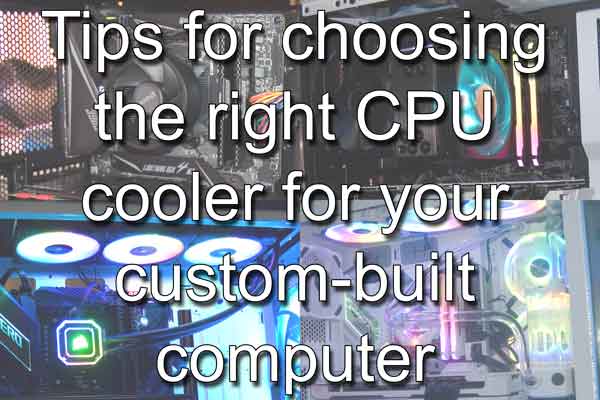
Shopping for a CPU cooler can be a daunting task due to the overwhelming number of options available. To choose the right CPU cooler, you will need to take into consideration the type of CPU, available space, noise level, and whether you prefer an air or liquid cooler. Aesthetics may also play a role in your decision. Let's look at some of the things you must consider when choosing the right CPU cooler.
Compatibility and size: The first thing to consider in choosing the right CPU cooler for your custom-built computer is compatibility. Most CPU coolers will fit the majority of motherboards on the market, but if the CPU is relatively new, the coolers that support it may be limited.
The second thing you need to consider is the size of the CPU cooler. With CPU coolers, you must look at the space required for the heatsink (air) or radiator (liquid). For air coolers, is there enough room between the CPU on the motherboard and the side panel on the case? For liquid coolers, is there enough room in the case for a radiator and fan assembly?
Air or liquid: When it comes to CPU cooling, there are two (2) primary options: air or liquid cooling. Air coolers use fans to circulate air over a heatsink, while liquid coolers use a closed-loop system to circulate coolant over the CPU and through the radiator. While both options can provide excellent cooling performance, liquid cooling is typically more efficient and quieter than air cooling.
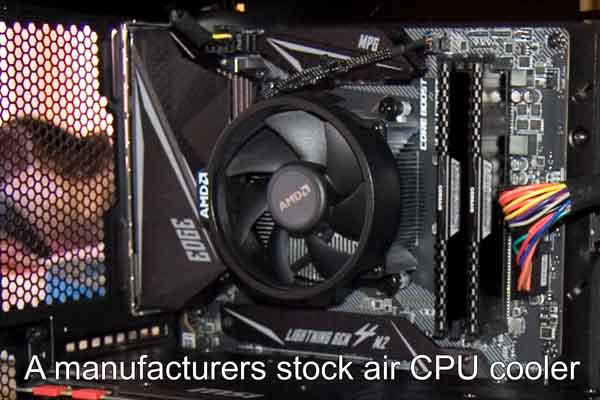
Now, some CPUs will come with a standard air cooler included. These work perfectly fine for surfing the web or checking email, but if you plan on putting the CPU under a heavy load, an air cooler with a larger heatsink or liquid cooler might be the best bet.
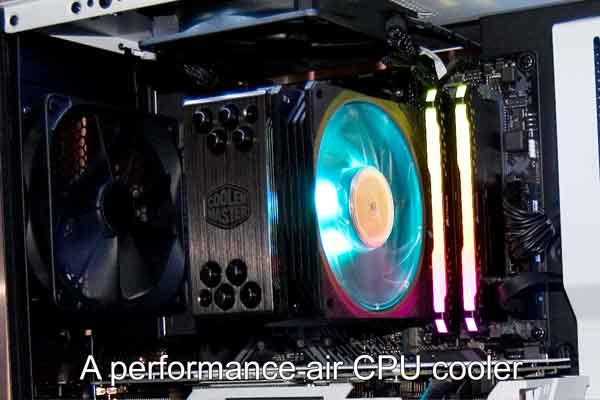
Many years ago, Intel used to have different warranty periods for CPUs that came with and without their cooler (3 years with / 1 year without), so checking the warranty coverage is recommended. Also, remember that liquid cooling can be more expensive and challenging to install, so it's essential to weigh the pros and cons before making a decision.
With liquid cooling, there are two (2) types of systems: All-In-One (AIO) or a custom loop. AIOs are sealed and are not serviceable.
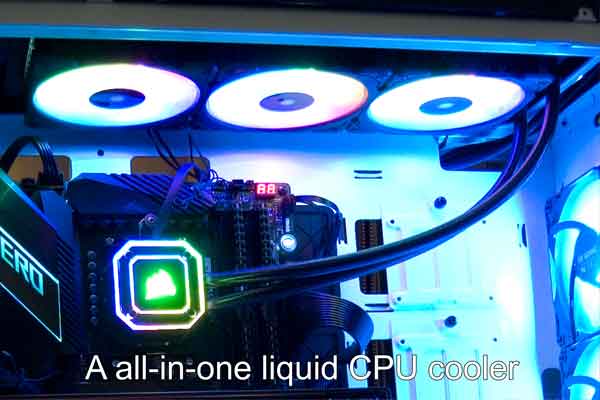
Custom loops are open and can be serviced.
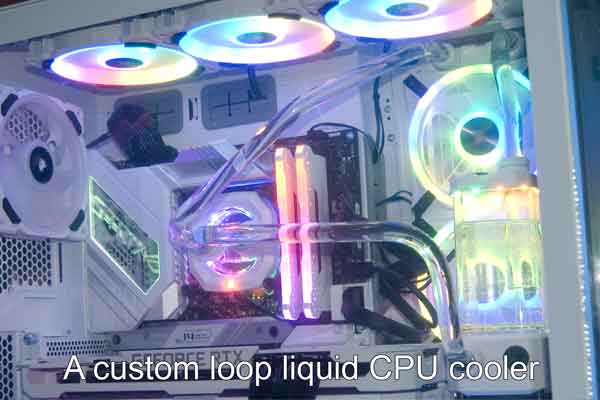
AIOs are easier to install but can not have any of the parts repaired or coolant replaced. Custom loops can be repaired, and coolant can be replaced, but use hard acrylic lines that must be cut and bent to the specific application.
Noise levels: The noise level is another critical factor to consider when choosing a CPU cooler. Some coolers can be loud, especially if you over-clock your CPU, which can be distracting and annoying when trying to work or play games. If you're looking for a quieter option, consider a liquid cooler or a low-noise air cooler. Be sure to check the specifications and reviews to get an idea of how loud a particular cooler is before making a purchase.
Remember that an air cooler with a large heatsink and multiple fans or a liquid cooler with a large radiator and multiple fans will cool much better than the manufacturer cooler. But with more fans comes more noise, so check the specifications of any cooler you are looking to purchase.
Cooling performance: One of the most important factors to consider when choosing a CPU cooler is the cooling performance. The cooler's ability to dissipate heat from the CPU significantly affects the overall system temperature. A high-performance cooler will keep your CPU running at optimal temperatures, which can improve system stability and prevent damage to your components.
Be sure to look for coolers with a high thermal efficiency rating and a high airflow rate for maximum cooling performance. Remember that with a large surface area, like with a large heatsink or radiator, you will get better cooling performance. And with plenty of airflow, your CPU will keep its cool even when throttled to the max.
Your budget: Finally, it's essential to consider your budget when choosing a CPU cooler. CPU coolers can range in price from as little as $20 to as much as $200 or more. While more expensive coolers may provide better cooling performance, they may not be necessary for your system. Be sure to weigh the features and benefits of each cooler against its price to find the best option for your needs and budget.
In conclusion, choosing the right CPU cooler for your computer is critical to keeping your system running smoothly and preventing overheating. By considering factors such as compatibility and size, air or liquid cooling, noise levels, cooling performance, and budget, you can find the perfect cooler to meet your needs and keep your computer cool. Be sure to do your research, read reviews, and compare options to make an informed decision and keep your computer running at its best.
8291d812-c550-41d3-928d-dbd8dc192be4|1|5.0|96d5b379-7e1d-4dac-a6ba-1e50db561b04